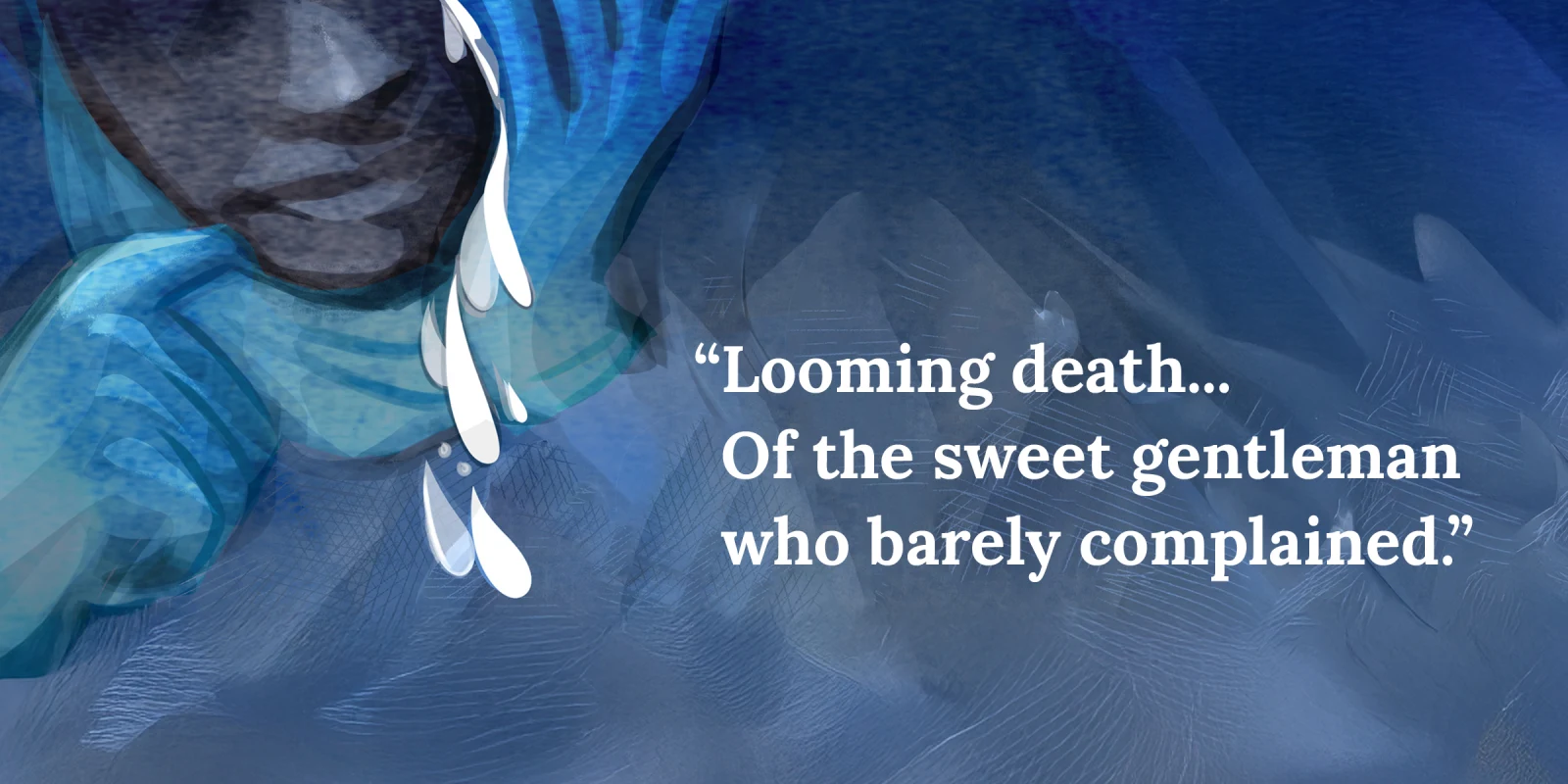This poem is part of the Medical Humanities vertical on Op-Med, which showcases creative writing by Doximity members. Do you have a poem, work of lyric prose, or flash fiction piece related to medicine that you’d like to share with the community? Send it to us here.
White Coats, Hidden Wounds
Neutrophils dropping, dropping,
Lactate rising, rising,
Breathing shortening, staggering, agonal, labored.
Words stumbling, from sentences to sporadic to deafening silence.
Consciousness cloudy, in and out, like a flickering candle,
Slowly drifting away, on a bright sunny Wednesday,
Looming death on a frantic on-call day,
Of the sweet gentleman who barely complained.
“I’m fine,” “I feel OK,” “The pain? Just a 4/10.”
Almost forget, the white elephant,
The stomach filled with mutated cells
Like signet rings.
The liver invaded by shadows of varying shapes and sizes,
From one-cent coins to clenched fists.
This early morning, Mr. R’s shivering hands struggling to dial,
“Please … call … my … wife …”
His name disappeared from our team’s list overnight.
Next day’s round:
“Patient passed away last night. It happened. It’s expected. Noted. Move on.”
Twenty more patients suffering, 20 more notes awaiting.
No time to attend to the bleeding wounds,
A bandage at best.
Get over it, shrug it away, cast it aside.
Back to work, to admission, to discharge, to family talks, to orders, to procedures.
Hassle will trump sorrow. Time will heal the pain.
Put up the shield, seal tight the wound.
Sun rises and falls,
Alarm rings at 5 a.m., sign out at 8 p.m.
Like nothing changed, nothing happened.
Time moves on, unyielding and indifferent.
No one notices,
The shadow lingers,
Dominant, day and night,
Like a black hole.
Decades later,
Awaiting a sudden outburst, on a busy on-call day.
An Interview with the Author
How does this submission relate to your medical practice?
As a medical resident in a fast-paced urban hospital in New York City, I have witnessed how the demands of clinical care can leave little room for reflection or emotional processing. Patient loss, while an expected part of our profession, can carry a quiet emotional weight — often unspoken yet deeply felt. In the midst of caring for others, it is easy to overlook the importance of caring for ourselves.
These experiences have taught me that healing extends beyond physical treatments. As a future medical oncologist, I hope to foster space — not only for patients and families to grieve and be supported, but also for physicians to acknowledge their own emotional responses with compassion. Creating room for reflection and shared humanity is essential to sustaining empathy in the face of suffering.
Why did you choose this medium? What interests you about it?
As a Doximity Digital Fellow, I regularly read Op-Med pieces, particularly those written by residents and fellows. Their reflections often resonate deeply with me, as they come from individuals at similar stages of training. I find their insights both relatable and inspiring, offering a sense of shared experience and community within the field of medicine.
How long have you been writing creatively? What got you started?
I began writing as a child around the age of 10, starting with short stories and personal reflections. Over the past 15 to 20 years, journaling has remained a constant part of my life — a way to process experiences and stay grounded. While the intensity of medical training has limited the time I can devote to creative writing, I still seek out moments to express myself through words. Writing continues to serve as a meaningful outlet, helping me cope, reflect, and reconnect with my creative side.
How do you cope with the pain of patient loss? Share in the comments.
Simo Du is a PGY3 internal medicine resident at Jacobi Medical Center in The Bronx, NY, currently applying for a hematology-oncology fellowship with a strong aspiration to become a medical oncologist. She enjoys staying active both physically and mentally — whether through playing sports like tennis with friends, exploring thought-provoking nonfiction, or journaling, a habit she’s maintained for over 15 years.
Patient identifying information has been changed to protect privacy.
Illustration by April Brust






